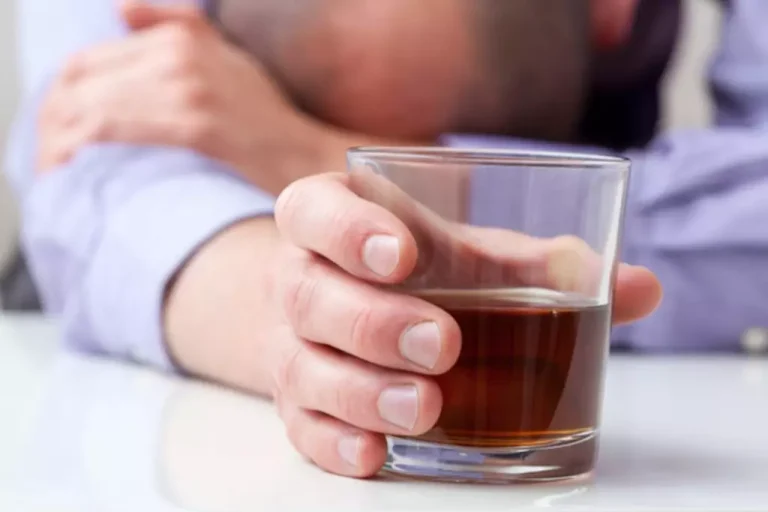Effect of alcohol consumption on kidney function: population-based cohort study Scientific Reports

The right treatment option for kidney pain related to alcohol depends on the cause. A person is at risk of different complications depending on the underlying cause of the kidney pain. Sustaining a physical injury to the kidneys, such as by falling from a height, may also cause kidney pain.
- These esters are synthesized in the endoplasmic reticulum, and transported to the plasma membrane and then removed from the cell by binding to lipoproteins and albumin and transported in the circulation.
- They’ll be able to determine whether these medications are safe to take with buspirone.
- But there’s plenty of research to back up the notion that alcohol does lead to weight gain in general.
- Maintaining a healthy diet and engaging in physical activities can reduce the risk of kidney cancer (31, 32).
- Kidney failure and alcohol use are often linked, and it seems there’s no turning back once damage is done.
- Typically, doctors will recommend that you avoid taking St. John’s wort with buspirone.
Does buspirone interact with vaccines?

Occasional drinking, one or two drinks now and then, usually doesn’t harm kidney function. Excessive drinking, more than four drinks a day, can seriously affect your health, especially if you have kidney disease. Having more than three drinks in a day (or more than seven per week) for women, and more than four drinks in a day (or more than 14 per week) for men, is considered «heavy» drinking. Heavy drinking on a regular basis has been found to double the risk for kidney disease. Several epidemiological studies have shown that mild alcohol consumption benefits cardiovascular health (Coate 1993; Kannel and Ellison 1996) by reducing the risk of coronary heart disease (Mukamal et al. 2006). In contrast, heavy drinking leads to the development of nonischemic dilated cardiomyopathy (Klatsky 2007) and significantly increases the risk of sudden cardiac death (Hookana et al. 2011).
Kidney Diseases and AUD: Lessons From Epidemiology
- This finding suggests that rhabdomyolysis and myoglobin toxicity may trigger oxidative stress in the kidney via mitochondrial injury.
- The timing of the pain could be a coincidence, or the alcohol could have intensified an existing problem.
- CYP2E1 is very active in oxidizing many chemicals to reactive intermediates, e.g. carbon tetrachloride, benzene, nitrosamines, acetaminophen, halothane.
- Some studies, but not all, suggest an increased rate of alcohol elimination by native Americans compared to Caucasians.
- Binge drinking (usually more than four to five drinks within two hours) can raise a person’s blood alcohol to dangerous levels.
One such complication is impaired vitamin D metabolism (Shankar et al. 2008), which may influence the function of several other organs, creating a vicious cycle. Chronic alcohol consumption induces profound injury in several organs that may affect and aggravate the deleterious effect of ethanol on the kidney. Ethanol itself markedly induces the expression of the microsomal ethanol oxidation system (CYP2E1), producing reactive oxygen species as a byproduct. Increased gastrointestinal permeability and endotoxin load may lead to alcoholic steatohepatitis resulting in excessive immunoglobulin A (IgA) load (due to increased intestinal production and decreased hepatic IgA clearance). IgA deposits may accumulate in the kidney, leading to glomerulopathy. Renal microcirculatory alterations in advanced liver cirrhosis leads to hepatorenal syndrome.
Treatments for chronic kidney disease
If the condition becomes severe, it will ultimately lead to kidney failure. The kidneys are vital in maintaining the body’s internal balance and overall health. These bean-shaped organs filter waste products, excess fluids, and toxins from the blood to form urine. If you have specific concerns about alcohol and your kidney health, it’s best to get personal medical care. Our team of experienced, compassionate urologists are here does alcohol effect your kidneys to assist you.

Your Risk of Cancer May Increase
“Over time, this repeated damage can result in cirrhosis, where the liver becomes so scarred that it loses functionality,” she explains. The heart-protective potential of red wine is believed to be partially due to its high concentration of plant compounds called polyphenols, especially resveratrol. This antioxidant, found in grape skins, may prevent inflammation and clogged arteries by reducing the oxidation of harmful LDL cholesterol. For people with diabetes and CKD, alcohol may be safe to drink if you have your blood sugar level under control.
- However, if the damage is detected early and alcohol consumption is stopped, the kidneys may gradually recover and regain their partial or full function (4, 19).
- More research on possible population differences in alcohol elimination is required (27,28).
- Alcohol increases the acidity of urine and can irritate the lining of the bladder.
- If you have questions about consuming alcohol during buspirone treatment, talk with your doctor or pharmacist.
- Association between total alcohol intake and rapid decline in kidney function (odds ratios) with three levels of adjustment in relation to baseline alcohol consumption among 5729 participants.
- CYP2E1 is a P450 which has the highest activity for oxidizing alcohol to acetaldehyde.

 Alfonso Moraleja Juárez es Doctor en Filosofía y Ciencias de la Educación por la Universidad Autónoma de Madrid y Graduado en Ciencias Políticas por la UNED. En la actualidad, dirige en la Universidad Autónoma de Madrid la publicación de Filosofía y Letras Cuaderno Gris. Compagina la docencia en el IES Joan Miró con la de alumnos de altas capacidades (PEAC) y con los alumnos del Master MESOB en la UAM.
Alfonso Moraleja Juárez es Doctor en Filosofía y Ciencias de la Educación por la Universidad Autónoma de Madrid y Graduado en Ciencias Políticas por la UNED. En la actualidad, dirige en la Universidad Autónoma de Madrid la publicación de Filosofía y Letras Cuaderno Gris. Compagina la docencia en el IES Joan Miró con la de alumnos de altas capacidades (PEAC) y con los alumnos del Master MESOB en la UAM.